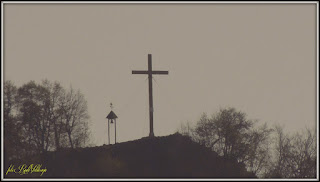info grad-visit celje
Romantičen, zapeljiv, mogočen,
temačen, strašljiv, celjski ... Vse to je Stari grad Celje. Predstavlja obvezno
destinacijo za vse obiskovalce Celja ne glede na to, od kod prihajajo. Mogočni
grad z obzidjem, ki že stoletja vlada na griču nad mestom, vas bo že od daleč
pustil brez besed. Ko ga boste obiskali, vam bo v spominu ostal za vedno.
O GRADU
Nekoč...
Stari grad Celje je v pisnih
virih prvič omenjen leta 1323. Njegova podoba je bila sprva mnogo skromnejša,
saj je obsegal le romanski palacij z obzidjem. Današnjo podobo je grad dobil
kasneje, ko so ga prevzeli grofje Celjski, najbolj znana in najpomembnejša
vladarska rodbina na območju današnje Slovenije. Svojo oblast in politično moč
so širili daleč po tedanji Evropi in tako krojili usodo širšega zemljepisnega
območja.
Prvi med Celjskimi, ki se je z ženo in štirimi otroki preselil na Stari grad Celje, je bil Friderik I. Ob vselitvi je grad temeljito spremenil in povečal v stanovanjsko rezidenco. Grad se je nato postopoma širil. Okoli leta 1400 sta bila na vzpetini zgrajena še štirinadstropni obrambni stolp, imenovan Friderikov stolp, ter obrambno obzidje, ki sta se ohranila vse do danes. Friderikov stolp je dobil ime po Frideriku II. Celjskem, ki je bil v stolpu zaprt. Dinastija Celjskih se je končala s smrtjo zadnjega moškega potomca, Ulrika II.
Prvi med Celjskimi, ki se je z ženo in štirimi otroki preselil na Stari grad Celje, je bil Friderik I. Ob vselitvi je grad temeljito spremenil in povečal v stanovanjsko rezidenco. Grad se je nato postopoma širil. Okoli leta 1400 sta bila na vzpetini zgrajena še štirinadstropni obrambni stolp, imenovan Friderikov stolp, ter obrambno obzidje, ki sta se ohranila vse do danes. Friderikov stolp je dobil ime po Frideriku II. Celjskem, ki je bil v stolpu zaprt. Dinastija Celjskih se je končala s smrtjo zadnjega moškega potomca, Ulrika II.
Danes...
Grad je s prenovo dobil tudi
sodoben Turistično informacijski center in Kavarno Veronika ter tako postal
atraktivna turistična točka, ki ponuja prelep razgled na mesto in okolico. V
Turistično informacijskem centru lahko obiskovalci izberejo promocijske
zloženke, informativno gradivo o gradu, Celju in okolici ter informacije o
znamenitostih in prireditvah v Celju. Na voljo je pestra izbira spominkov ter
izdelkov domače in umetnostne obrti, uradni slovenski spominki I FEEL SLOVENIA,
raznovrstna literatura…
Stari grad Celje je vsako zadnjo
soboto v avgustu prizorišče tradicionalne srednjeveške prireditve »Dežela
Celjska vabi«, v poletnih mesecih pa se na njem odvija program Živa zgodovina,
ki obiskovalcem ponuja možnost, da z obiskom postanejo del »žive« zgodovine in
v avtentičnem okolju mečujejo z vitezi, streljajo z lokom, se spogledujejo z
grajskimi princesami, ustvarjajo v srednjeveških delavnicah …
Programi (po predhodnem
dogovoru): vodeni ogledi, grajska pojedina, povitezitev, organizacija in
izvedba porok.
Romantic, enticing, magnificent,
dark, frightening – the Celje Old Castle. It is a must-see sight for all
visitors to Celje, regardless of where they are from. A mighty walled castle
towering over the city is sure to leave you speechless. Once you visit it, it
will stay in your memories forever.
Once upon a time ...
The earliest written reference to
the Old Castle of Celje dates back to 1323. The original design only included a
Romanesque palace and the walls. It was given its today's scope and appearance by
the Counts of Celje, the most renowned and notable noble dynasty seated in the
area of present-day Slovenia. Their reign and power had a long reach and they
had a substantial impact on the political fate of the Central European region.
The first Count of Celje to move to the Celje Old Castle with his wife and four children was Friderik I. After moving in, he started to refurbish the castle into a more comfortable dwelling. In the following decades, they extended the curtain wall to include the eastern inner ward, while the four-storey guard tower (the Friderik Tower) took over the main defensive role. Herman II used this tower a dungeon as he locked up his own son Friderik II, after whom the tower is named, due to Friderik's forbidden love for Veronika Deseniška After the demise of the Counts of Celje, the castle was inherited by the Habsburg dynasty who left it to their burgraves.
The first Count of Celje to move to the Celje Old Castle with his wife and four children was Friderik I. After moving in, he started to refurbish the castle into a more comfortable dwelling. In the following decades, they extended the curtain wall to include the eastern inner ward, while the four-storey guard tower (the Friderik Tower) took over the main defensive role. Herman II used this tower a dungeon as he locked up his own son Friderik II, after whom the tower is named, due to Friderik's forbidden love for Veronika Deseniška After the demise of the Counts of Celje, the castle was inherited by the Habsburg dynasty who left it to their burgraves.
... and today?
A modern tourist info centre and
café Veronika were added during the most recent renovation, making the castle
an appealing tourist sight that offers stunning views of the city and the
surroundings. The tourist info centre offers promotional brochures, information
about the castle, Celje and its surroundings, and other sights and events in
the town. It also stocks a varied choice of souvenirs and traditional
handicraft products, official I FEEL SLOVENIA souvenirs, books etc.
Every last Saturday in August, the Celje Old
Castle is the venue of a traditional medieval festival "Dežela Celjska
vabi ..." ("Land of Celje invites ..."). Throughout the summer,
the program Live History taking place there offers an immersive experience as
the visitors can take part in sword fights with knights, shoot with bows, flirt
with the princesses, unleash their creativity in medieval workshops etc.
Programs (subject to previous
arrangement): guided tours, royal feast, knighting ceremony, weddings.


















































Ni komentarjev:
Objavite komentar
Opomba: Komentarje lahko objavljajo le člani tega spletnega dnevnika.